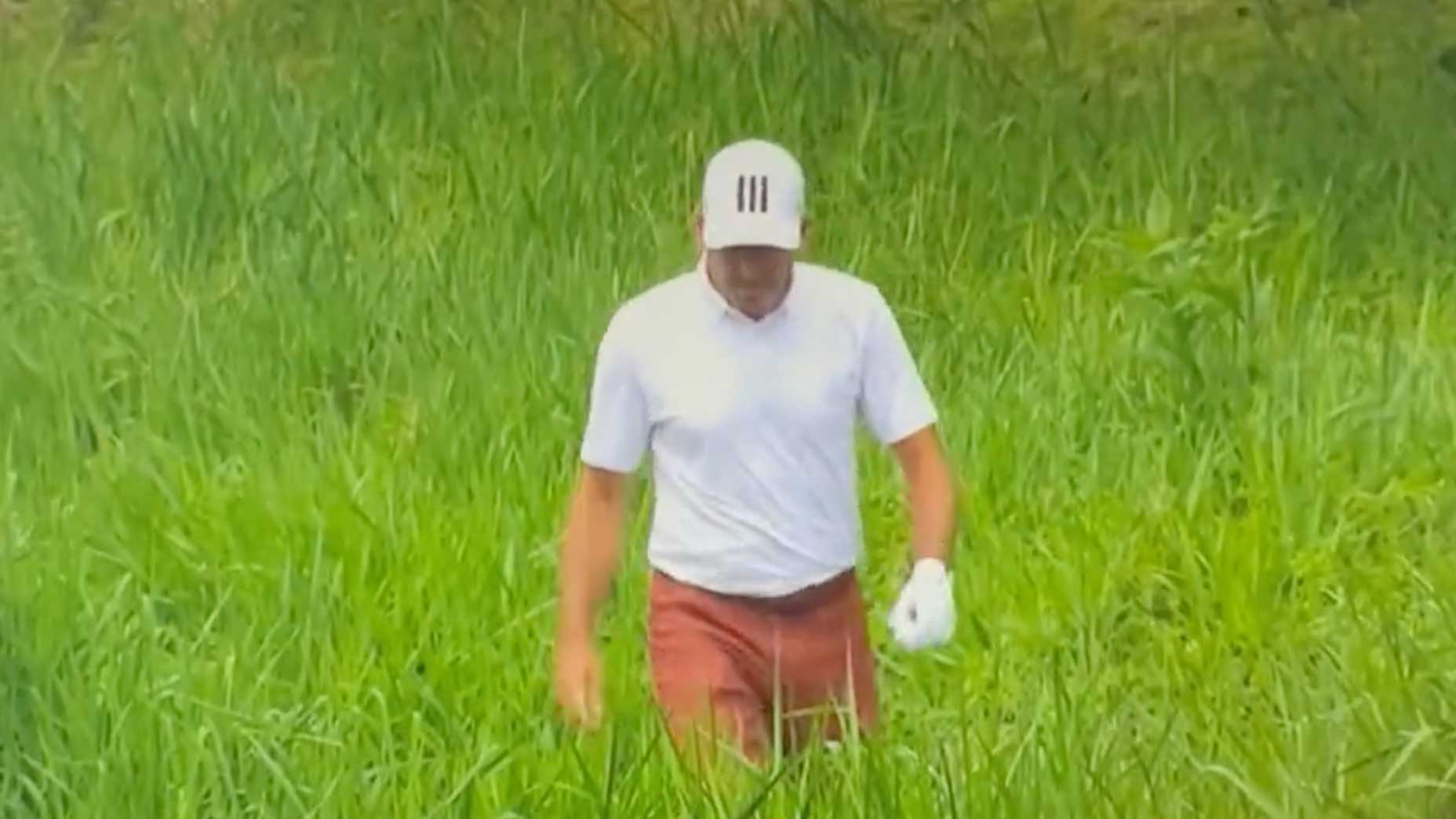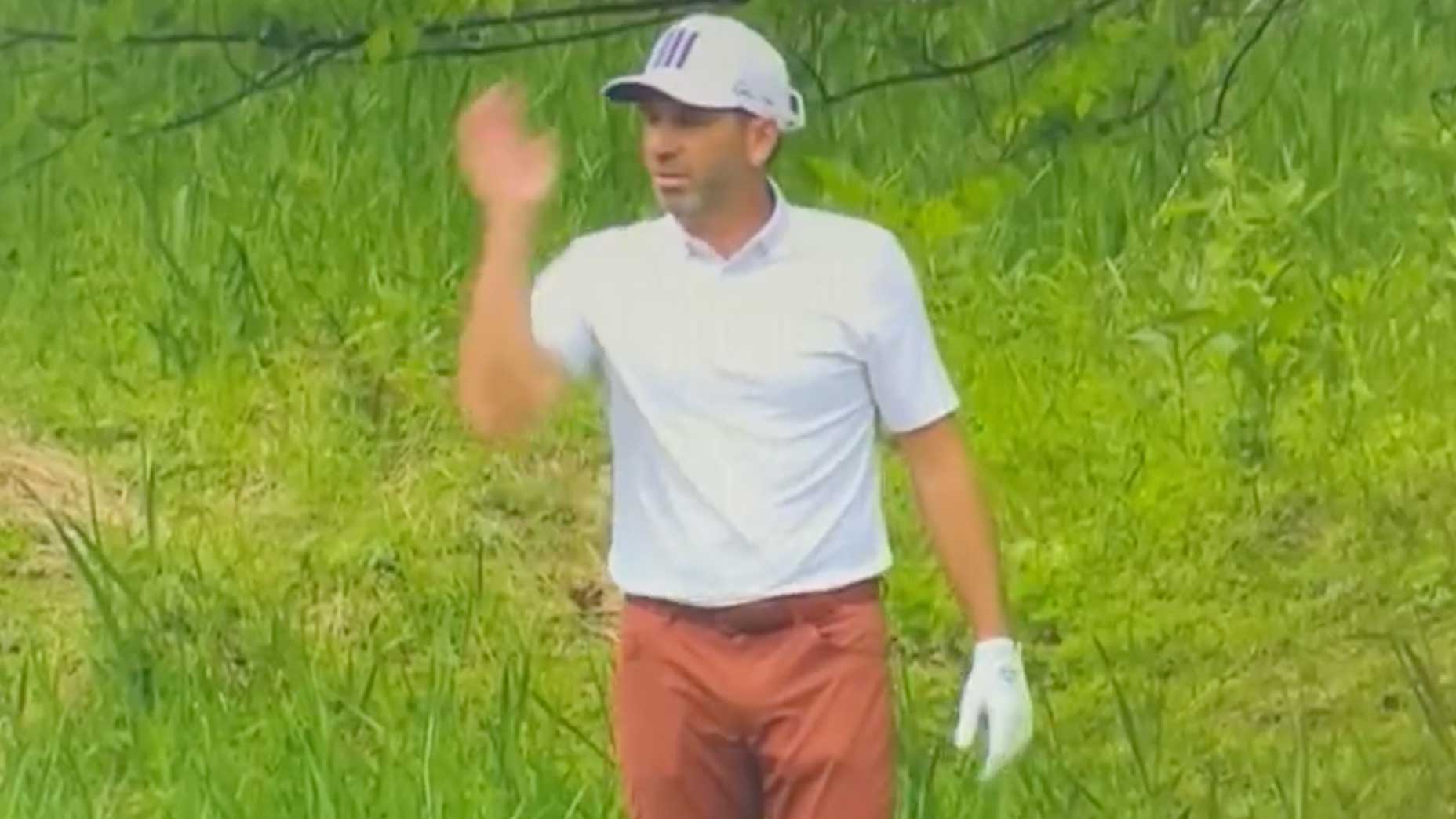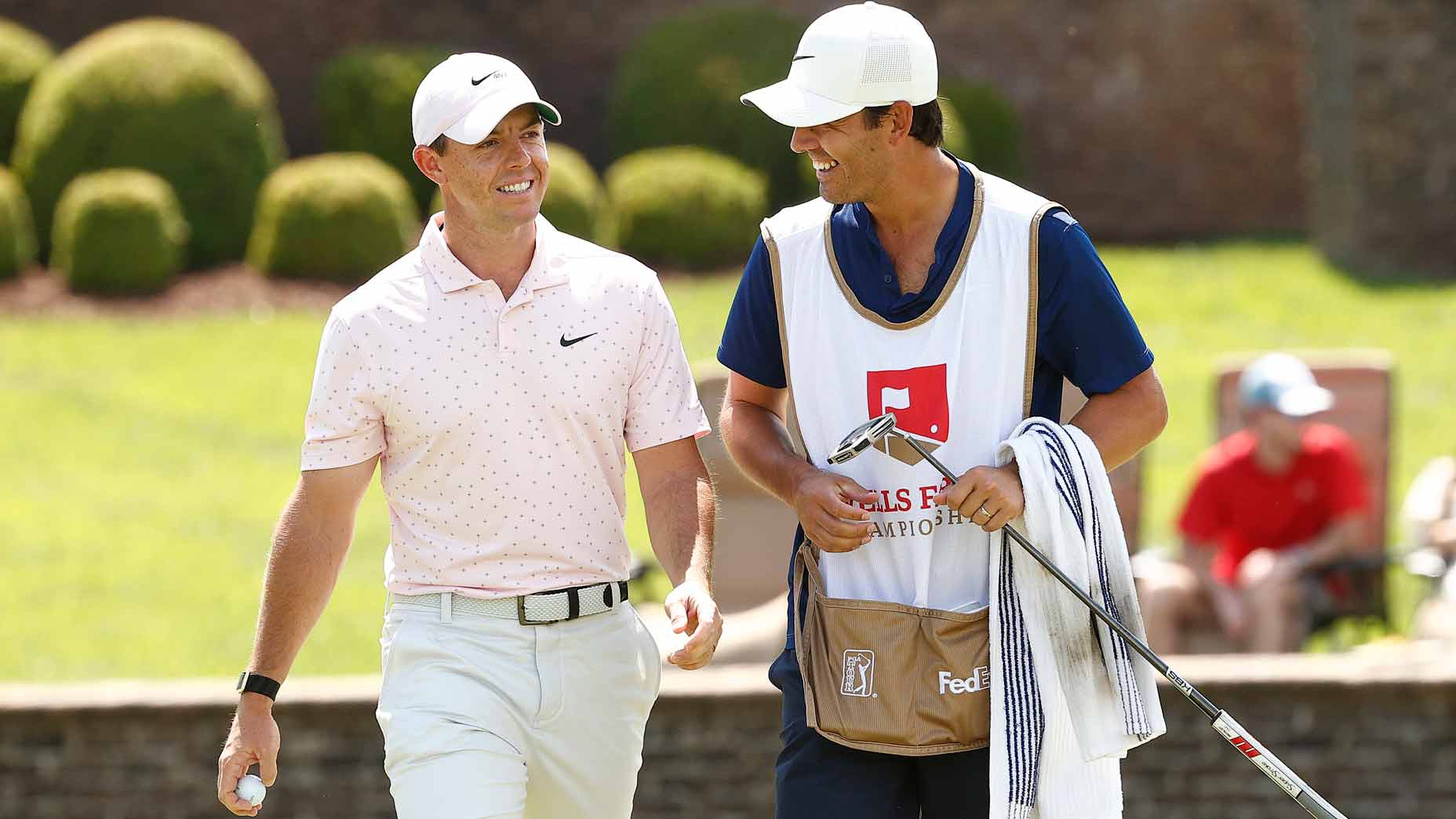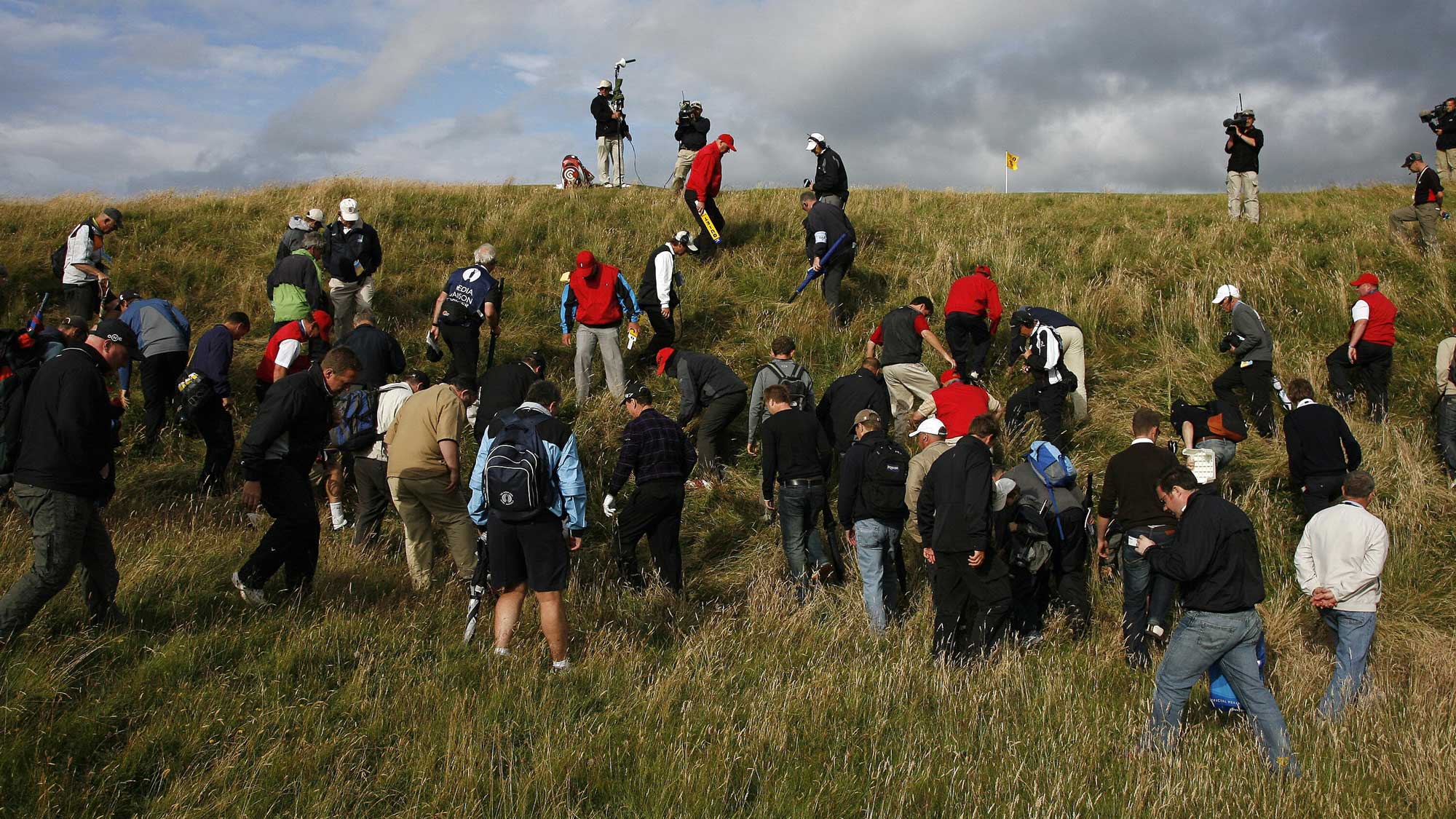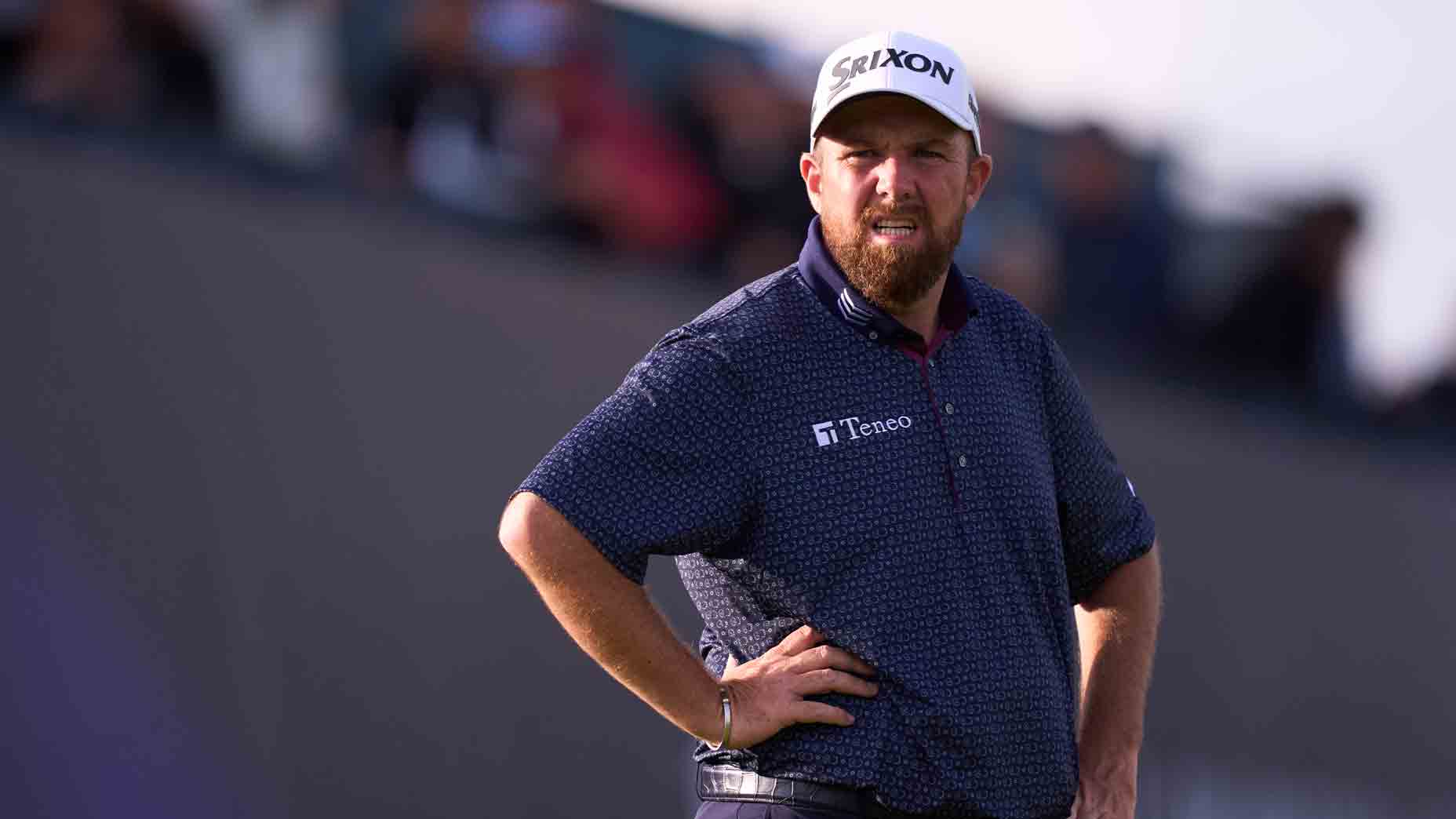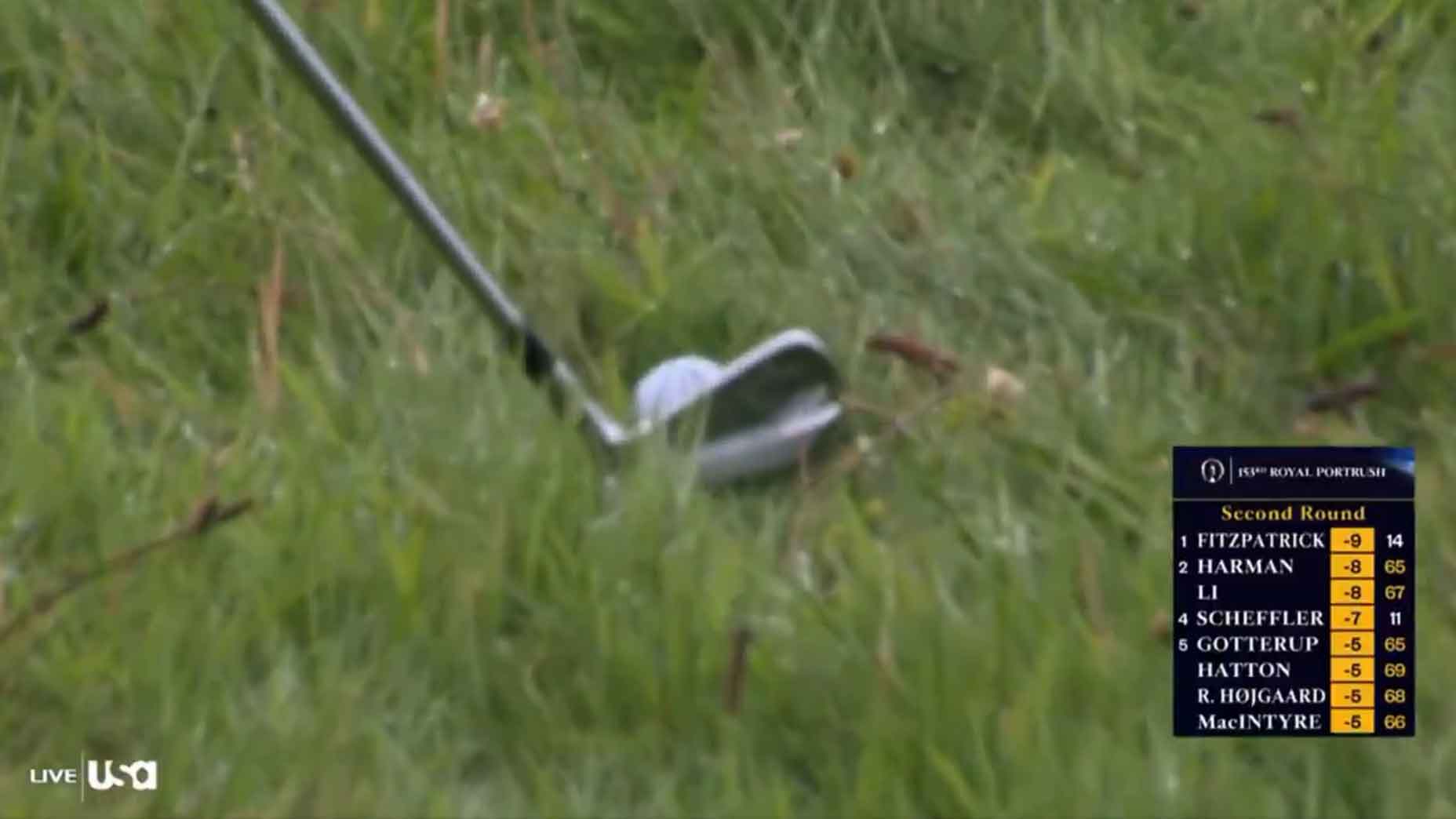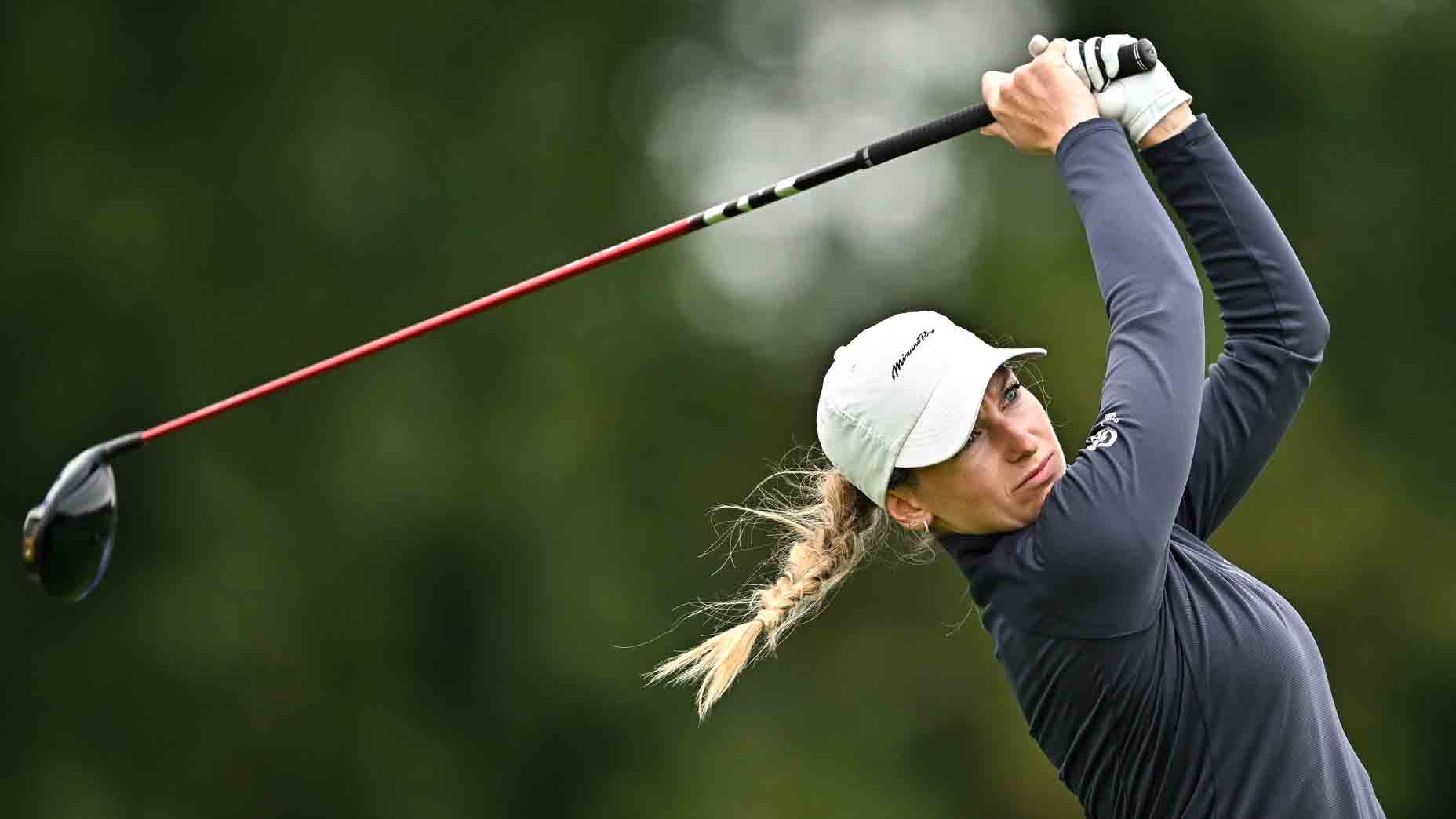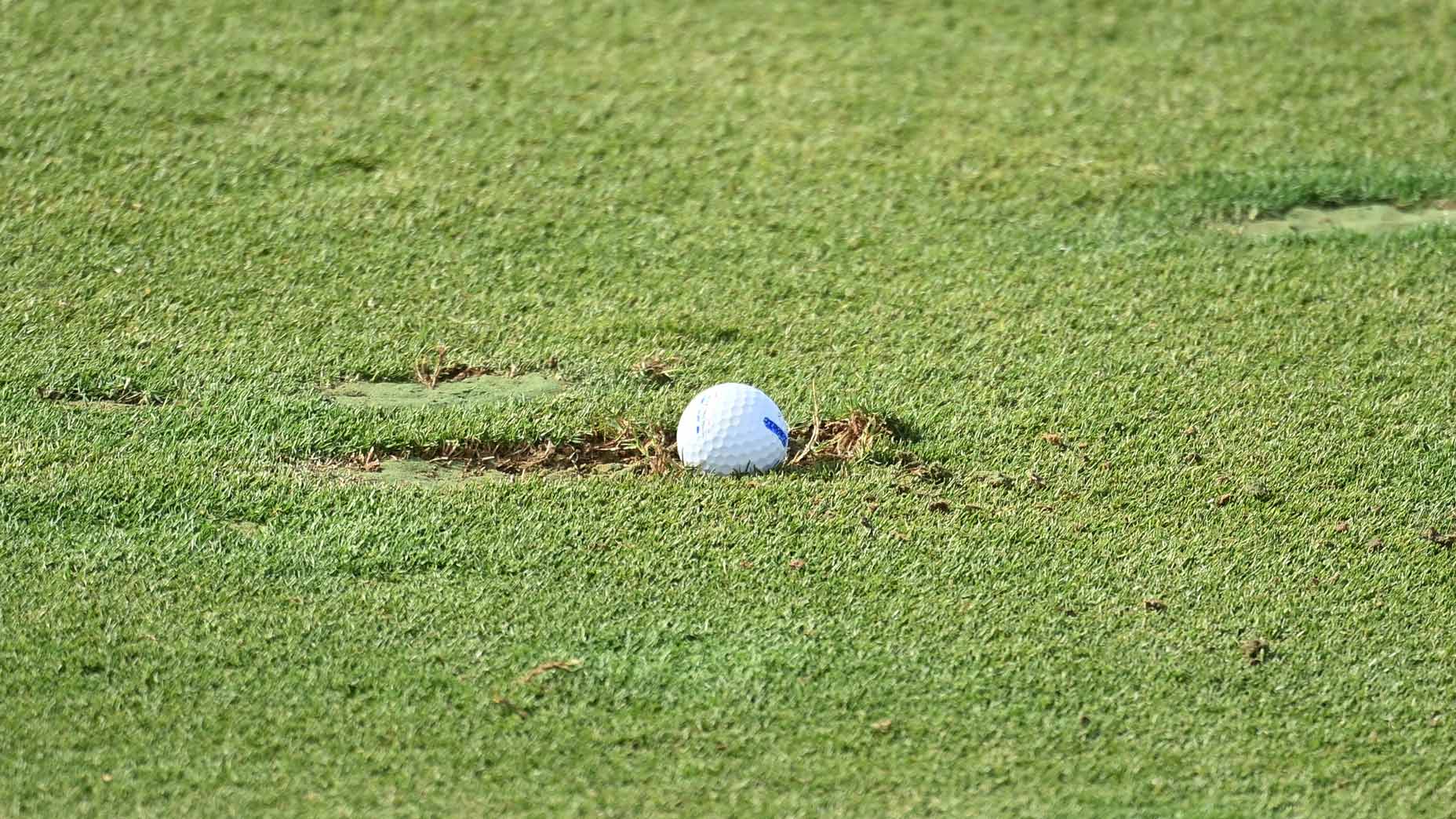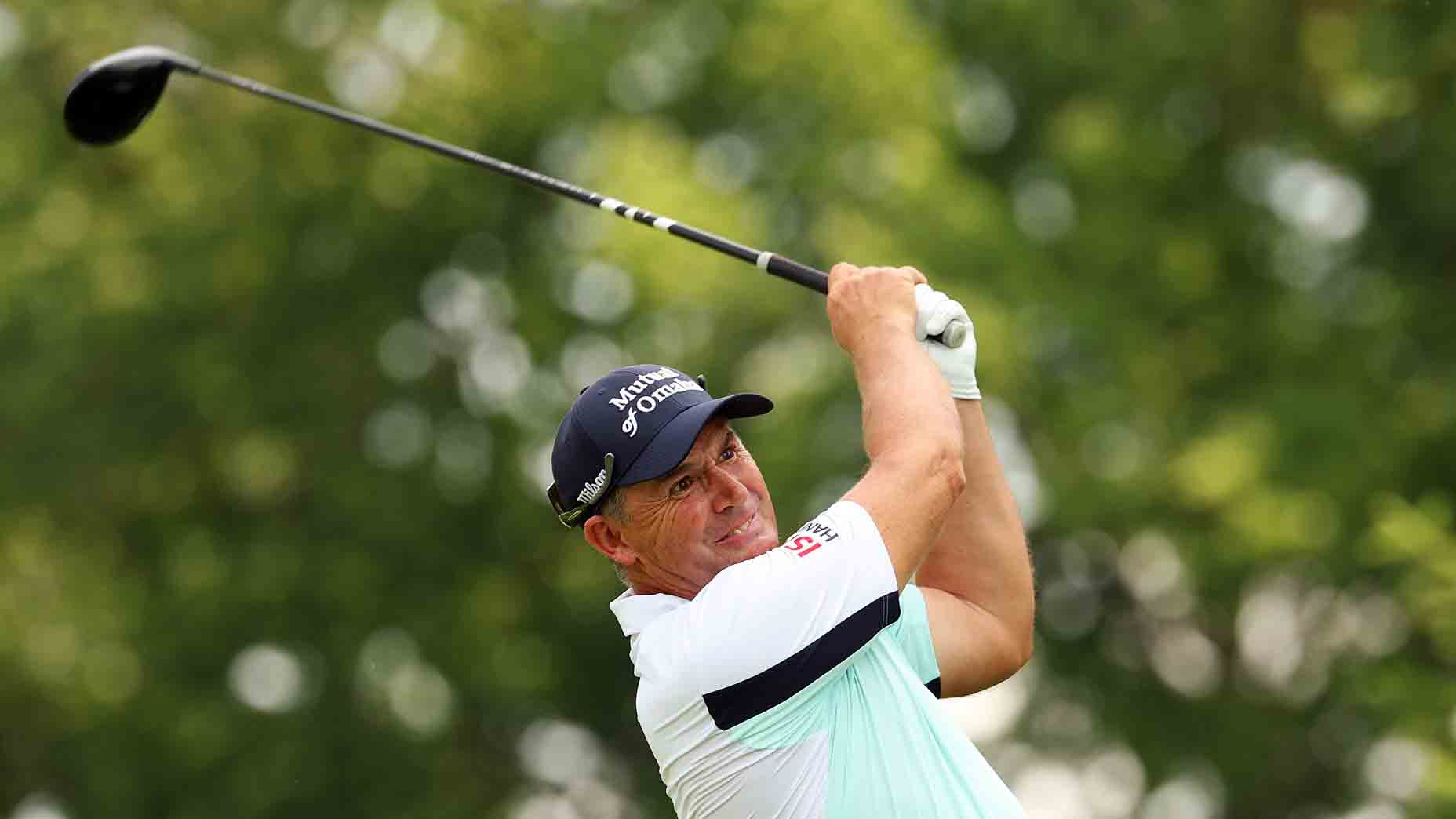Sergio Garcia was — and we’ll put it nicely — upset. A referee was corrected in a late-night statement. And you? Engrossed. Who doesn’t like golf drama? But maybe a little confused too. After all, if a paid official initially got Thursday’s ruling wrong at the Wells Fargo Championship, then the armchair ones may have also been unclear over what went down to the left of TPC Potomac’s 10th fairway.
Sergio Garcia ruling in heated incident is a mistake, PGA Tour saysBy: Nick Piastowski
There, across a river, somewhere in the thick stuff, was Garcia’s tee shot. From there, a spotter pointed the player in that direction, Garcia hopped, skipped and jumped over rocks to get there, and the search began. Or did it? The official had believed Garcia was looking as he was crossing over, he started his clock somewhere at this point, and the ball was found one minute over the allotted three.
And Garcia was upset. And a referee was corrected.
So let’s try to untangle all of this. Maybe we can find clarity before the buzzer.
When does a search begin?
This is the core question. And not exactly exact. It’s not as if players regularly shout, “I’m beginning my search now.” (Though, to be honest, that would have helped on Thursday.) So, like many golf rules scenarios, players and officials operate under the honor system.
In the rules book itself, there is some guidance under an interpretation of the definition of “lost,” which reads: “The three-minute search time for a ball starts when the player or his or her caddie (or the player’s partner or partner’s caddie) starts to search for it. “Starts to search for it” is obviously the key. The official assumes that the player has arrived in the area where they estimate the ball to be — and that was the issue between Garcia and the official, which the PGA Tour noted in a clarification on Thursday night.
Clarification regarding Sergio Garcia ruling, following full review of video by Steve Rintoul, PGA TOUR – Senior Tournament Director pic.twitter.com/WIGc1gGSTa
— PGA TOUR Communications (@PGATOURComms) May 6, 2022
The complete statement:
“On the 10th hole of Thursday’s first round of the Wells Fargo Championship, Sergio Garcia drove his ball left into a red penalty area. As Garcia entered the penalty area, a referee located on the 10th hole started a search time clock, as it appeared a search for the golf ball had begun. Unbeknownst to the referee, the players in the group were told by a TV spotter that the ball was on the far side of the creek, and at that point, Garcia spent a considerable amount of time trying to access the other side of the creek. This was not in clear view of the referee due to other players in the group playing, so the time clock was still running on the search, when it should have been paused. When the ball was found by Garcia, the referee’s three-minute search time had expired, and Garcia was informed the ball was treated as lost. Garcia operated under Rule 17.1d (2) using back-on-the-line relief from a red penalty area. Garcia made 5 (par) on the hole.
“Subsequently, the Rules Committee reviewed video from the situation after the ruling and discovered the inadvertent error by the referee who was not aware the player was not searching for the ball on the other side of the creek. To clarify, the time spent by Garcia trying to access the other side of the creek should have delayed the start of the search time clock, and the ball would have still been “in play” if not for that error. Garcia was informed of the developments following his round. Under the Rules of Golf, Garcia’s score does not change despite this clarification.”
Sergio Garcia, frustrated with what he thought was the early start of the clock to look for a lost ball, seemingly telling a rules official…
— Fried Egg Golf (@fried_egg_golf) May 5, 2022
…I cant wait to leave this tour
…cant wait to get outta here
…just a couple more weeks until I don’t have to deal with you any more pic.twitter.com/k1qRRYbmsF
Wait, the 3-minute clock can be paused?
You bet. And the rules cover this. Also under the definition of “lost,” the book says: “If the search begins and is then temporarily interrupted for a good reason (such as when the player stops searching when play is suspended or needs to stand aside to wait for another player to play) or when the player has mistakenly identified a wrong ball: The time between the interruption and when the search resumes does not count, and The time allowed for search is three minutes in total, counting the search time both before the interruption and after the search resumes.” (More clock-stopping clarity is also addressed under interpretation 18.2 a(1)/1, entitled “Time Permitted for Search When Search Temporarily Interrupted.”)
So say Sergio had to even cross a river, a valley and a mountain to get to his ball? That’s cool, right?
Again, yes, but at this point, we should point out that a player shouldn’t take their sweet time to get to where they think the ball is — in order for fans and officials to begin the search.
The rules spell this out, also under an interpretation for “lost.”
2022 Wells Fargo Championship: How to watch, TV schedule, streaming, tee timesBy: Kevin Cunningham
“The player may not delay the start of the search in order to gain an advantage by allowing other people to search on his or her behalf,” the interpretation reads. “For example, if a player is walking towards his or her ball and spectators are already looking for the ball, the player cannot deliberately delay getting to the area to keep the three-minute search time from starting. In such circumstances, the search time starts when the player would have been in a position to search had he or she not deliberately delayed getting to the area.”
But what if a player gets injured while getting to their ball? Can the clock stop for that?
This would likely fall under the rules committee at the event. Specific wording in the definition of lost — “If the search begins and is then temporarily interrupted for a good reason” — is vague and would give officials some leeway for whatever reason.
Back up one second: So folks in the crowd or officials can search for the ball — and that doesn’t count toward the clock?
Correct! Here, it pays to be a popular player.
Do lost-ball search parties give some pros an unfair advantage?By: Michael Bamberger
How does the clock actually work?
With an hour and second hand! Kidding, kidding. Some officials use an actual stopwatch. Some use their iPhone.
But what happens when a referee arrives when the search has already begun? Typically, they’ll ask, and honesty is in play.
One more question: Do referees give time updates? Or at least say when the 3 minutes is up?
Some do.
We’ll leave it at that.
Latest In Instruction
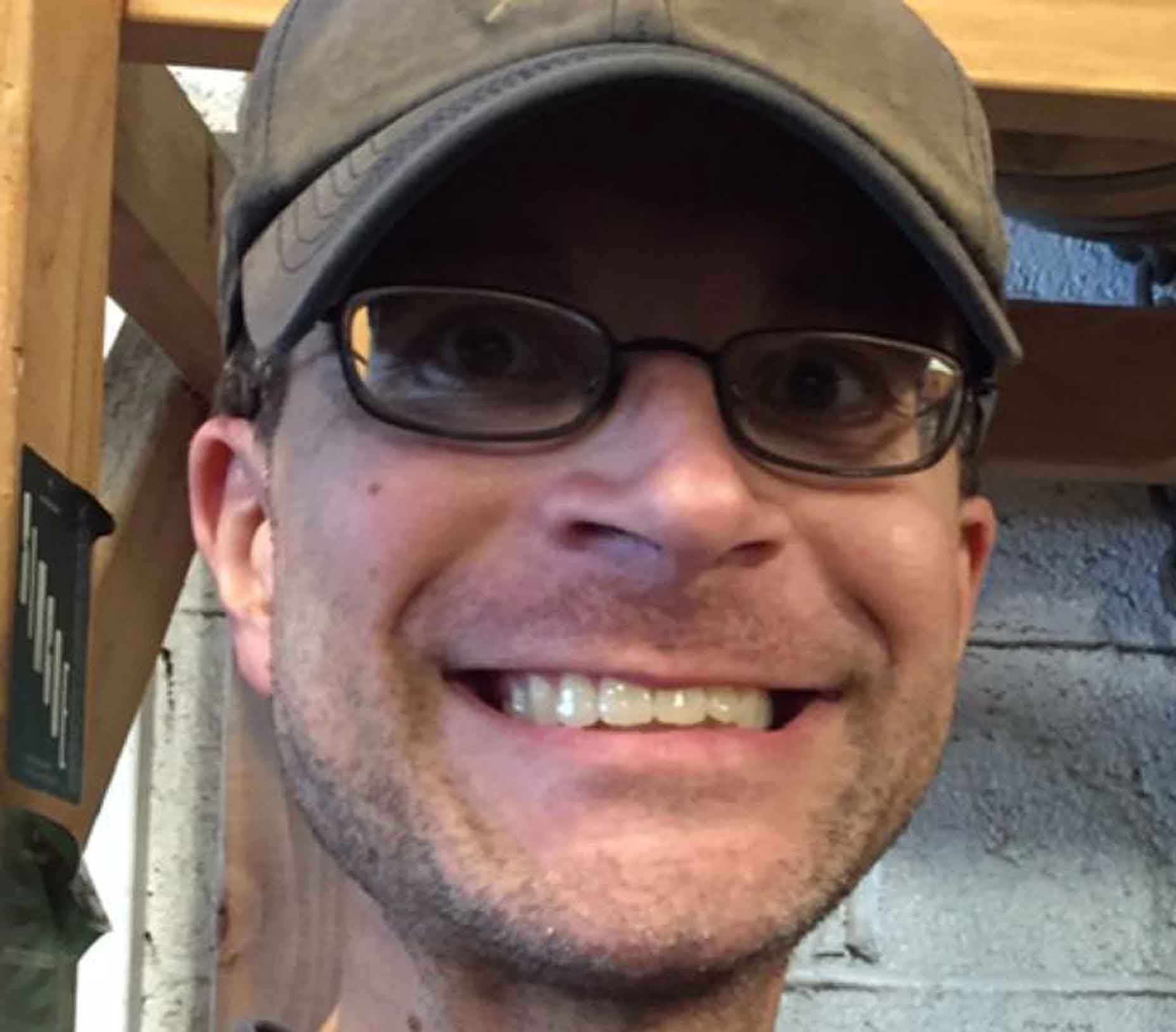
Nick Piastowski
Golf.com Editor
Nick Piastowski is a Senior Editor at Golf.com and Golf Magazine. In his role, he is responsible for editing, writing and developing stories across the golf space. And when he’s not writing about ways to hit the golf ball farther and straighter, the Milwaukee native is probably playing the game, hitting the ball left, right and short, and drinking a cold beer to wash away his score. You can reach out to him about any of these topics — his stories, his game or his beers — at nick.piastowski@golf.com.
